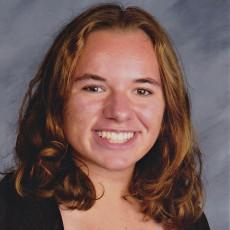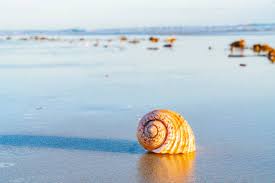This summer, as a part of my internship at Clean Ocean Access, I worked at summer camps to teach kids about our local environment and the importance of being environmentally conscious.
Every week, I would attend summer camps at the Newport Community School, the YMCA, and FAB Newport. During my time at these camps, we would teach lessons and play games with the kids. Some of the topics of our lessons included the watershed, composting, waste sorting, and noise pollution.
My favorite lesson we did was noise pollution at the Newport Community School. We started off the day with playing a game that involved echo-location. We assigned three kids to be our “dolphins”, this meant that they wore blindfolds and relied on their hearing to find their prey. After this, we told the rest of the kids that they were fish. And they all had a squeaky toy to make a sound with. The dolphins had to tag as many fish that they could hear as possible.
The kids enjoyed this activity and had a lot of fun. After they all got the hang of it, we added “motor boats”to the game (these were kids that made loud boat noises). This represented noise pollution from boat traffic in the water. During the rounds with motor boats, the dolphins had a difficult time finding their food. At the end of the game, we had a discussion with all of the kids about why it is difficult for dolphins to find food due to noise pollution and how to prevent this. At the end of the day, the kids understood what noise pollution was and why it is bad for sea creatures.
Another one of my favorite activities we did was teaching kids about composting at the YMCA. We taught the kids that what we do on land affects the sea and the many benefits of composting. We also explained to kids the concept of worm composting and showed them Sarah’s worm bin. At first, the kids were grossed out because of the worms and their “poop”. But we explained to them that the worms helped create the compost because they eat food and poop out castings that benefit soil. At the end of this fun lesson, all of the kids picked up a worm and gave it a name!
Other days, we met up with camps on the beach and identified sea creatures. At Third Beach, we met up with a FAB Newport Summer camp and walked the beach with the kids. We ended up lifting up tons of rocks and looking for crabs. At the end of the day we caught 57 crabs! Majority of these crabs were Asian Shore Crabs, which are invasive species in Rhode Island. I also showed many kids a really cool trick: if you pick up a periwinkle and hum, it will come out of its shell. This is because the snail thinks the vibration is the tides going out, and they think they need to move closer to the water.
I had a ton of fun this summer and got to work with many different groups and organizations across Aquidneck Island. It was really great being able to teach kids in a fun way that helps them understand the important role of keeping our ocean clean.
Posted By Maggie Lauder
Posted Sep 5th, 2023


